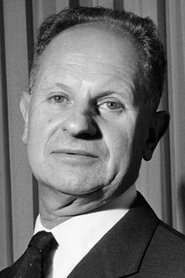 Manuel Rosenthal
Paris, France
Manuel Rosenthal
Paris, France

Manuel Rosenthal (18 June 1904 – 5 June 2003) was a French composer and conductor who held leading positions with musical organizations in France and America. He was friends with many contemporary composers, and despite a considerable list of compositions is mostly remembered for having orchestrated the popular ballet score Gaîté Parisienne from piano scores of Offenbach operettas, and for his recordings as a conductor.
Rosenthal was born in Paris to Anna Devorsosky, of Russian-Jewish descent, and a French father he never met. His surname was taken from his stepfather, Bernard Rosenthal.
He started his musical studies on violin at age 6, which he played in cafés and cinemas after his stepfather's death in 1918 to support his mother and sisters. In 1920, he entered the Conservatoire in Paris but eventually left it after failing to win an expected first prize. In addition to continuing his violin studies with Alterman and Jules Boucherit and playing in theatre and cinema bands, he also studied composition. Around this time he met Léo Sir, inventor of string instruments known as the dixtuor, and was persuaded to play the sursoprano (a 4th higher than the violin) and find composers to write for this new medium. Through this Rosenthal met eminent young Parisian composers of whom Darius Milhaud and Arthur Honegger were the most distinguished, and also contributed his own music to a recital in Paris in October 1921.
His Sonatine for two violins and piano, composed for a sight-reading examination, was acclaimed after its performance at the 99th concert of the Société musicale indépendante in Paris at the end of October 1924, attended by both Nadia Boulanger and Alexis Roland-Manuel. After a stint in the military he became Maurice Ravel's third and final student, seeing him once or twice a month while also having lessons in counterpoint and fugue from Jean Huré. while continuing to play violin in the Moulin Rouge and Casino de Paris café orchestras. Ravel's encouragement ultimately led to his winning the Prix Blumenthal (worth 20,000 francs) in 1928. Ravel lobbied the directors of the Opéra-Comique to get Rosenthal's one-act opera Rayon des soieries performed there in June 1930. He also arranged for Rosenthal's conducting debut, at a concert composed of Rosenthal's own music in 1928.
His conducting career began in earnest in 1934, when he became percussionist and assistant conductor of the Orchestre National de France, to Désiré-Émile Inghelbrecht. In 1936, Georges Mandel invited him to conduct the Orchestre de Radio PTT. As his fame as a conductor grew, he was attacked in Action Française in 1937 by Lucien Rebatet, who demanded his expulsion from his radio conductorship. In the same year Serge Koussevitzky, in Paris during the Exposition, invited Rosenthal to become assistant conductor of the Boston Symphony under him – an offer reiterated after a Salle Pleyel concert on the eve of war in 1939. After Ravel's death in 1937, and following the success of Gaîté Parisienne, he became a close colleague of great Russian émigré composer Igor Stravinsky. ...
Source: Article "Manuel Rosenthal" from Wikipedia in English, licensed under CC-BY-SA 3.0.











